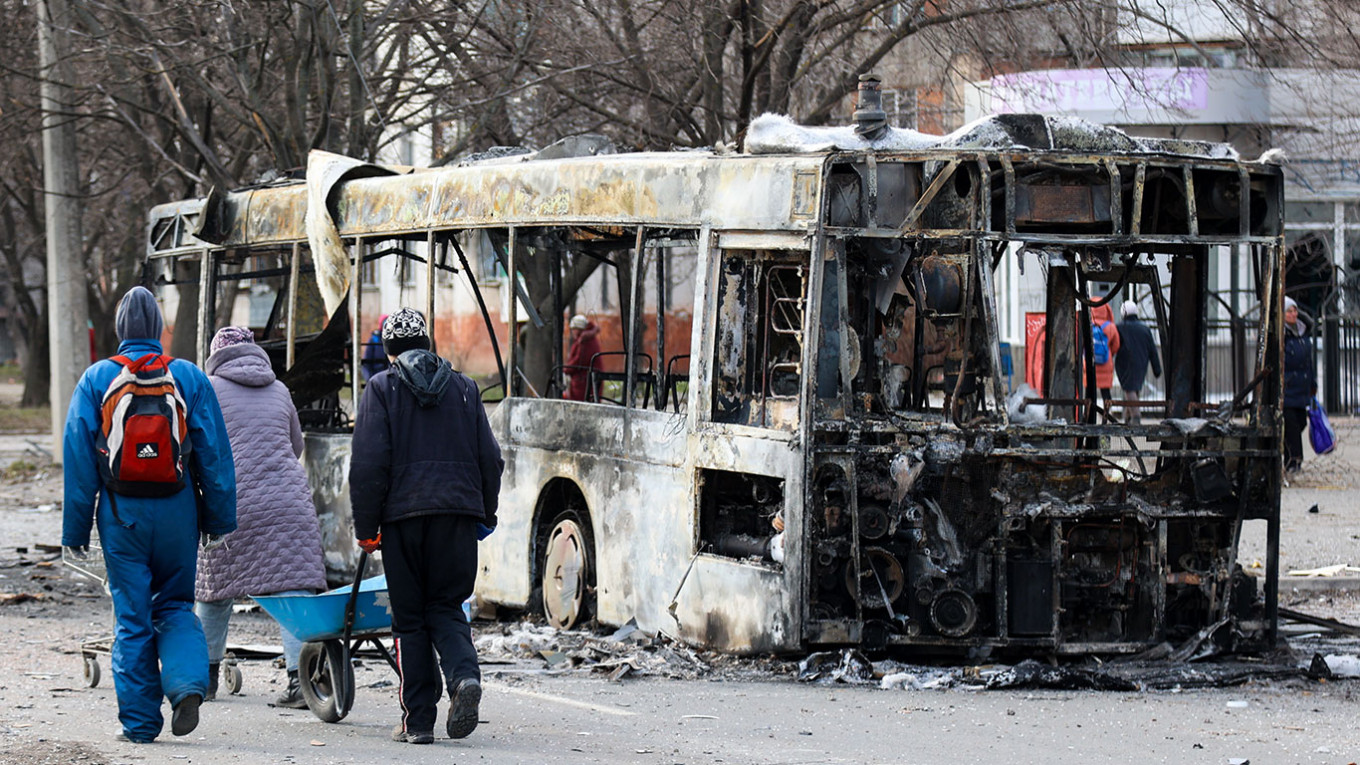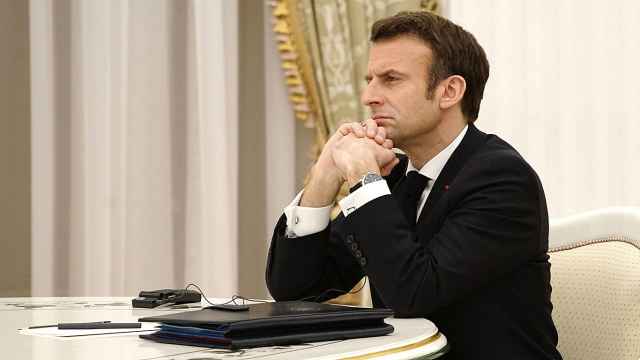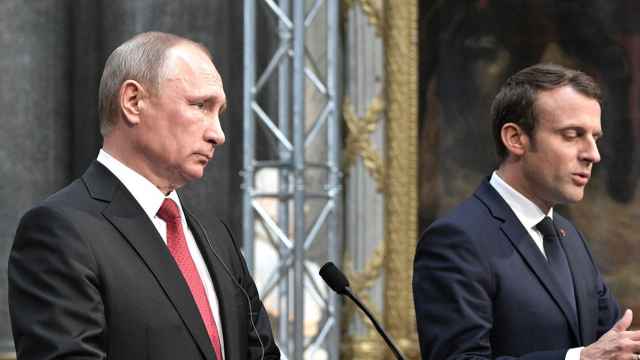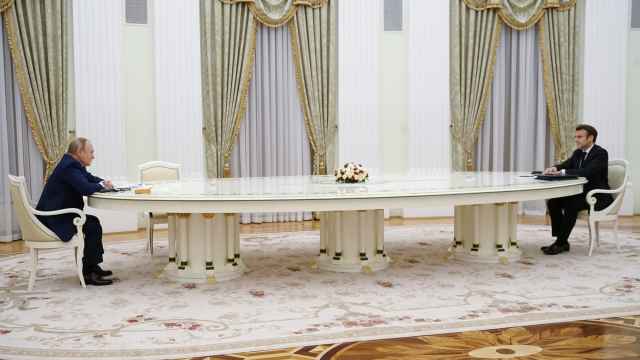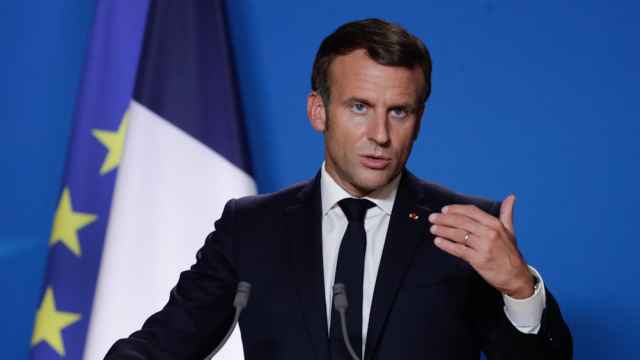The conditions for carrying out a humanitarian operation sought by France to help citizens in the besieged Ukrainian port of Mariupol are not met "at this stage," President Emmanuel Macron's office said after the French leader spoke by telephone with his Russian counterpart Vladimir Putin.
Macron outlined to Putin details of the mission that France, Turkey and Greece would oversee, but the Russian leader replied that "he was going to think about it" before responding, an Elysee Palace official said.
In the meantime, "relaxing our efforts is out of the question" because the situation is "catastrophic" for Mariupol and its residents, the official said.
According to the Kremlin, however, Putin told Macron that Ukrainian "nationalists" in Mariupol would have to "lay down their arms" before Russian forces allow any emergency humanitarian assistance.
It was the ninth telephone call between the two leaders since Russia invaded its neighbor on Feb. 24, as Macron presses to keep a diplomatic line open in hopes of ending the conflict.
He sees his task as "achieving first a ceasefire and then the total withdrawal of (Russian) troops by diplomatic means," he told broadcaster France 3 at the weekend.
Ukrainian authorities say at least 5,000 people have died in Mariupol since the invasion began, with Ukraine's President Volodymyr Zelensky calling the siege of the city a "crime against humanity."
The Elysee official declined to comment on the latest round of cease-fire talks between Russia and Ukraine in Istanbul, which raised hopes of progress after previous rounds of talks failed to produce any breakthrough.
"We wish to consult first with the Ukrainians," the source said. "For now the war continues" and "our demands remain the same."
A Message from The Moscow Times:
Dear readers,
We are facing unprecedented challenges. Russia's Prosecutor General's Office has designated The Moscow Times as an "undesirable" organization, criminalizing our work and putting our staff at risk of prosecution. This follows our earlier unjust labeling as a "foreign agent."
These actions are direct attempts to silence independent journalism in Russia. The authorities claim our work "discredits the decisions of the Russian leadership." We see things differently: we strive to provide accurate, unbiased reporting on Russia.
We, the journalists of The Moscow Times, refuse to be silenced. But to continue our work, we need your help.
Your support, no matter how small, makes a world of difference. If you can, please support us monthly starting from just $2. It's quick to set up, and every contribution makes a significant impact.
By supporting The Moscow Times, you're defending open, independent journalism in the face of repression. Thank you for standing with us.
Remind me later.


